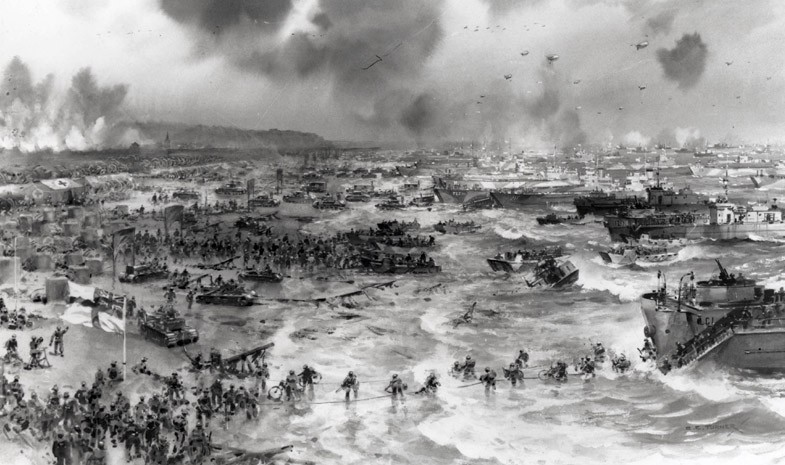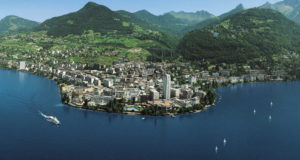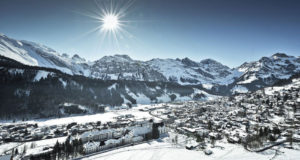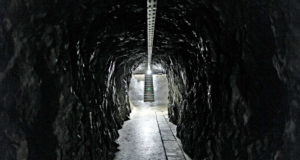As Allied forces stormed Normandy’s beaches 70 years ago, the archives of the Swiss Short Wave Service – swissinfo.ch’s predecessor – show a Switzerland wondering which borders to look to and whether it was safe to hope for war’s end.
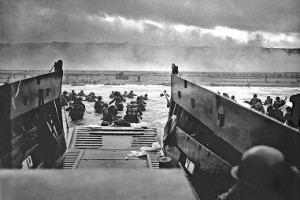
The D-Day invasion took place on June 6, 1944 (Wikimedia Commons)
“The first week of June has produced events of capital importance, events which rank together with Germany’s attack on Western Europe in 1940, with her onslaught on Russia in 1941, with Japan’s attack on Pearl Harbour in the same year, and with the Allied landing in North Africa in 1942,” announced the Swiss Observer radio programme, looking back on the D-Day invasion and the capturing of Rome by American forces, which had happened just two days before on June 4, 1944.
Indeed, the Short Wave Service’s lack of broadcasts referencing the Normandy landing – just three over the course of three days – show that the country was still processing the news that Hitler had lost Rome to the Americans.
“The capture of Rome that we announced yesterday was followed this morning by an event which overshadows it,” began the announcement of the D-Day invasion.
“The start of the great invasion in Western Europe perhaps would have made a yet greater impression in Switzerland had it not coincided with the fall of Rome, which has been thus the first Axis capital to pass under Allied control,” commented Hermann Böschenstein on the Political and Cultural Chronicles programme on June 7. Böschenstein, the parliamentary correspondent for the National-Zeitung newspaper, had been kicked out of Germany as a correspondent for criticising the Nazi regime.
“Switzerland is determined, under all circumstances, to defend this country’s neutrality against all invaders,” Böschenstein continued in his commentary.
“This means that although she is not directly attacked, Switzerland must stand ready to deal with still greater formations of foreign armies that might be forced on to her territory. These forces would have to be disarmed and interned according to international law. She must also be prepared to extend care in just as great a measure as possible, to civilians who might be forced across our frontiers by approaching military operations.”
Böschenstein had in the past written pieces advocating accepting more war refugees from neighbouring countries, and the Swiss government had, by 1944, received considerable criticism from abroad for not accepting more.
Although its refugee policy was hardening, in the days following the Normandy invasion, the Swiss government’s censorship and civilian control policies were showing signs of relaxing. These were early signs that the Swiss were breathing some sighs of relief and cautiously foreseeing an end to the war.
On the June 7 Swiss Spotlight programme, Pierre Béguin, the editor-in-chief of the Gazette de Lausanne newspaper, wrote that longer parliamentary sessions were resuming, having been shortened to facilitate war-time decision-making, and that the government was planning to lift some of the restrictions it had placed on citizens.
“In an ever-expanding degree, the federal Chambers are called upon to preoccupy themselves with future problems and a return to normalcy…the Chambers will hear a statement from the government relative to the proposal made to restore, just as quickly as possible, the constitutional rights of the citizens – rights which have been restricted in a certain measure due to war conditions and requirements.”
Source: Swissinfo

